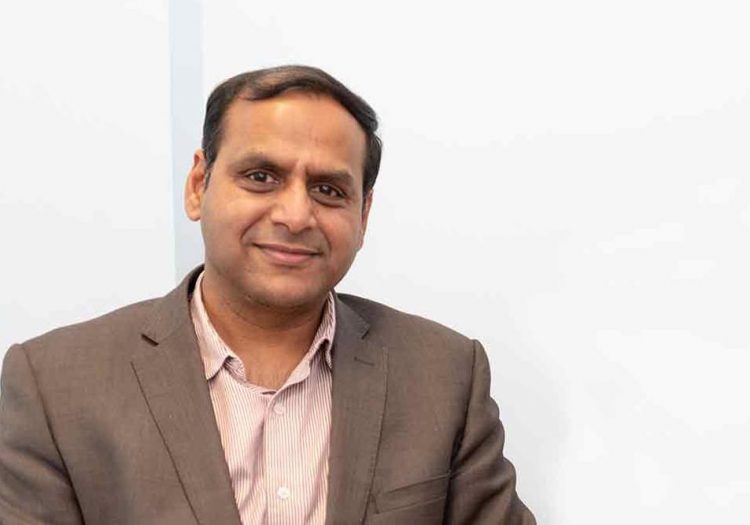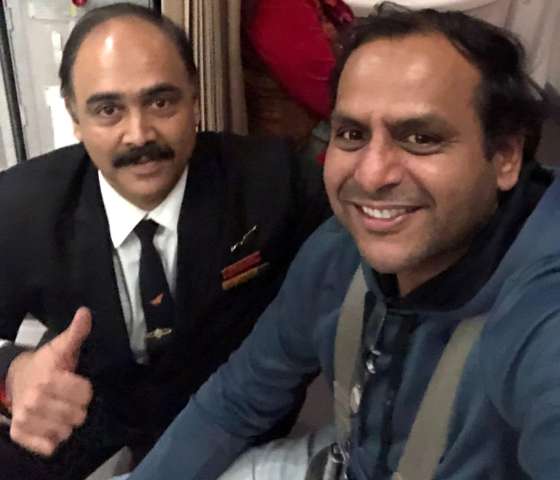A Leicester doctor has opened up about a life saving flight he took from the UK to India, which saw him bring a fellow passenger back from the brink of death – twice- after he suffered two cardiac arrests.
Dr Vishwaraj Vemala, a consultant at Leicester Royal Infirmary, was flying from the UK to India to take his mum back to their home town of Bangalore, when a 43-year-old passenger went into cardiac arrest.

Cabin crew on board Air India flight AI128 began frantically calling for a doctor, and Dr Vemala’s instincts kicked immediately.
He told the Leicester Times that the experience was definitely “one of the most significant”, but also “the most challenging” of his life.
“Every aspect of it was quite challenging – from the equipment to even the space we were confined to,” he revealed. It was definitely an experience – the most challenging of my life…
“In a hospital setting, we depend heavily on the team to get the favourable outcome, and we depend on the equipment that we use,” he explained. “In this situation, both of these things were compromised, which made everything so much harder.
“Also, trying to teach people at the same time as resuscitate the person, was much more of a challenge. However, this is what I’ve trained for all my life, and I did what I had to do.”
When Dr Vemala attended to the passenger, he did not have a pulse and was not breathing.
It took about an hour of resuscitation before he was able to get him back.
“During this time, I asked the cabin crew on board if they had any medication.
“Luckily, they had an emergency kit, which to my utter surprise, included resuscitative medication to enable life support,” revealed Dr Vemala, who has worked in Leicester for the past seven years.
“Apart from oxygen and an automated external defibrillator, there was no other equipment on board to monitor how he was doing.”
After asking the other passengers on board, Dr Vemala was also able to get his hands on a heart-rate monitor, blood pressure machine, pulse oximeter and glucose meter to keep an eye on the patient’s vital signs.
While speaking with Dr Vemala, the passenger went into cardiac arrest for a second time. This time it took longer to resuscitate him.
Dr Vemala said: “In total, he was without a good pulse or decent blood pressure for nearly two hours of the flight, alongside the cabin crew, we were trying to keep him alive for five hours in total.
“It was extremely scary for us all, especially the other passengers, and it was quite emotional.”
Concerned for the passenger’s chance for survival, Dr Vemala and the pilot tried to get permission to land at the nearest airfield in Pakistan, but their requests were denied.
Instead, they were able to arrange for landing at Mumbai Airport in India, where emergency crews were waiting for them on the ground.

“I remember it was extremely emotional for us all when we heard we could land in Mumbai. By the time we landed the passenger had been resuscitated and was able to speak with me. Nevertheless, I insisted he go to a hospital to be checked over,” he said.
“As a consultant hepatologist I look after extremely unwell patients and patients who have had liver transplants, but I don’t think I have ever treated a cardiac arrest during my job.
“Obviously during my medical training, it was something I had experience dealing with, but never 40,000 feet in the air!”
Dr Vemala, cites the experience as one of most significant of his life.
“It was huge, especially since my mum was there. She was right next to me,” he said.
“She’s never seen me work in hospital – it’s the first time she’s ever seen me do these emergency measures, so that made it even more emotional – she was crying a lot.
“As for the patient, he thanked me with tears in his eyes. He said: ‘I am forever indebted to you for saving my life’.
“This was indeed a moment that I will remember for the rest of my life”.


